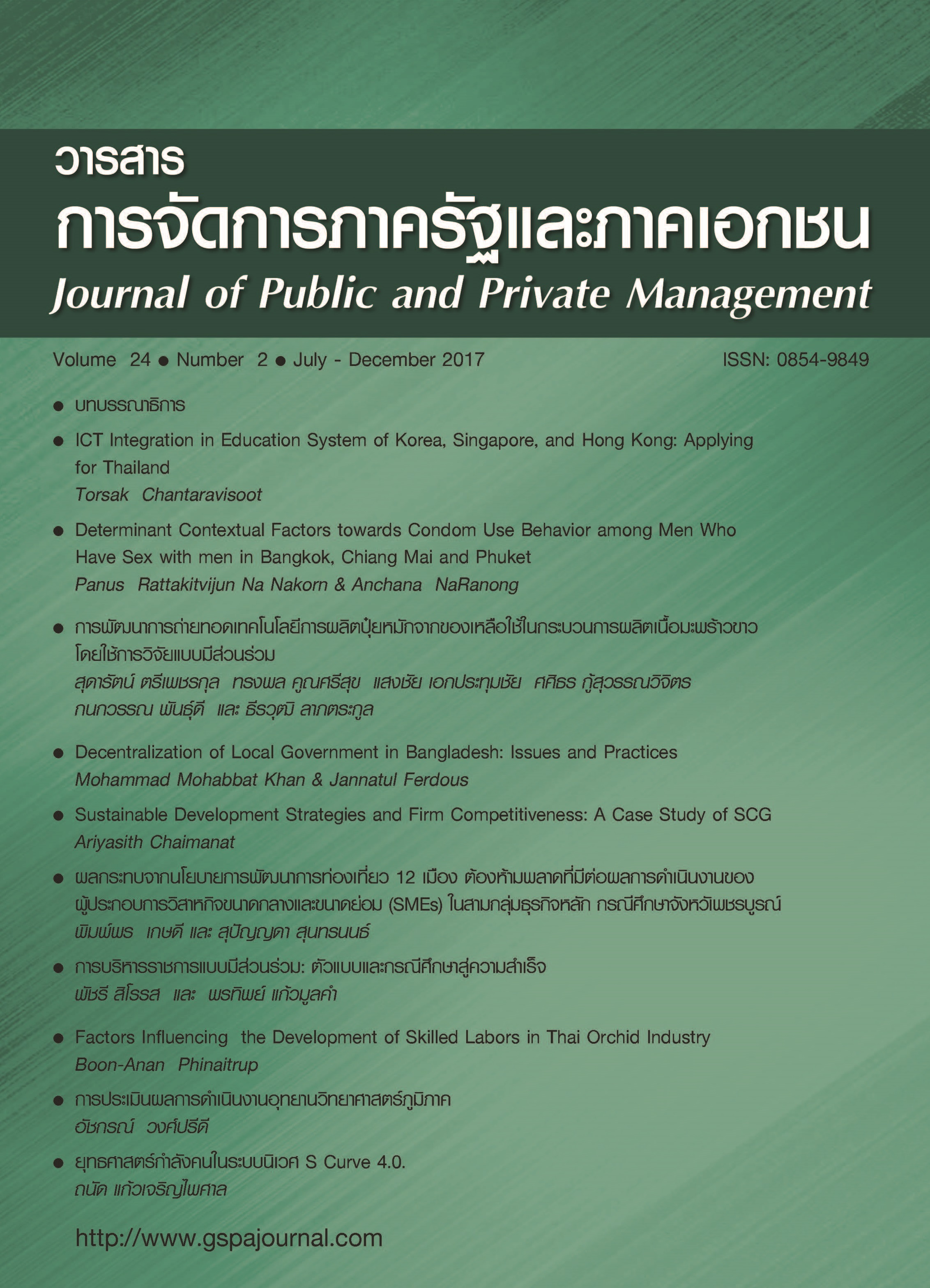Technology Transfer for Composting of Wastes from White Coconut Meat Manufacturing Process Using a Participatory Action Research
Abstract
The objectives of this research were (i) to transfer the technology for the production of compost and bio-extract from coir pith and coconuts’ embryo bud, which are wastes derived from white coconut meat manufacturing process using Participatory Action Research (PAR) and (ii) to analyze the mechanisms by which technology was transferred from educational sector to the private sector.
The results showed that in the process of a white coconut meat production, two by-products, namely, coir pith and coconuts’ embryo bud, approximately 5.00 tons and 0.01 tons, respectively, per 10.0 tons of white coconut meat were generated. Both by-products could be employed as raw materials for compost and bio-extract production. Cultivation of Chinese kale showed that treatments supplemented with compost and/or bio-extract showed better growth in terms of height, leaf number and yield than those without compost or bio-extract supplementation (P< 0.05).
Analysis of the process of technology transfer revealed that group meetings and practical training led to better understanding of participants on the management of waste stemming from white coconut meat manufacturing process as well as the techniques for compost and bio-extract production, with an understanding score of 80.0% and 84.0%, respectively. The factors positively favored the technology transfer process included the proclivity and corporate policies of company to promote employees’ learning and awareness environmental issues. Obstacles encountered during the technology transfer process were (i) change in corporate executives and (ii) full time working participants having difficulty finding time to participate.



